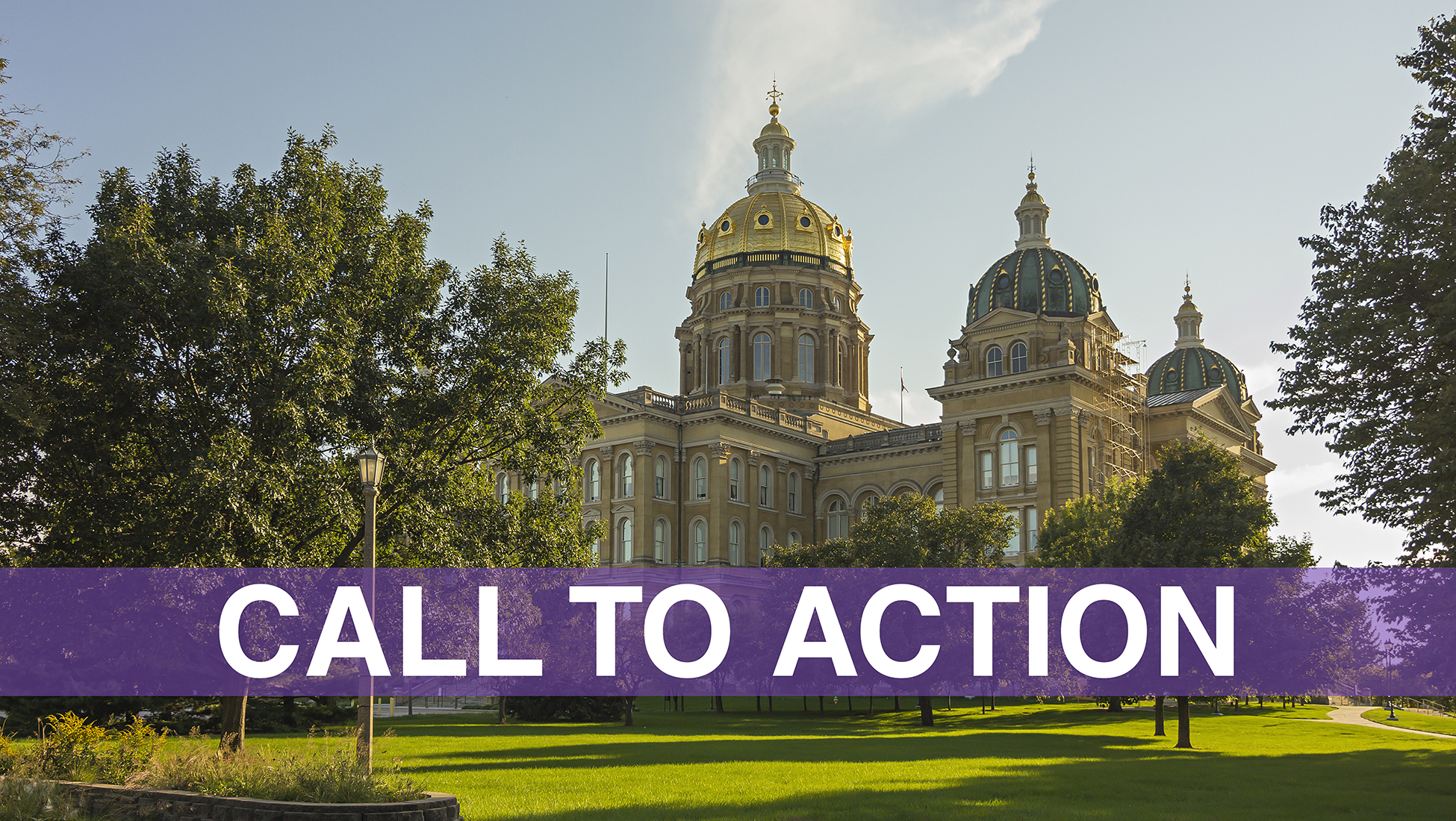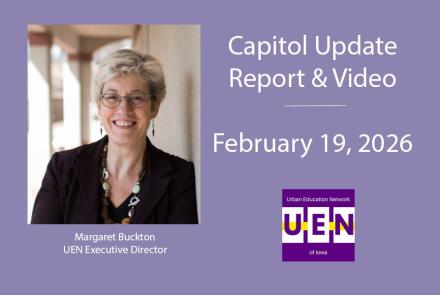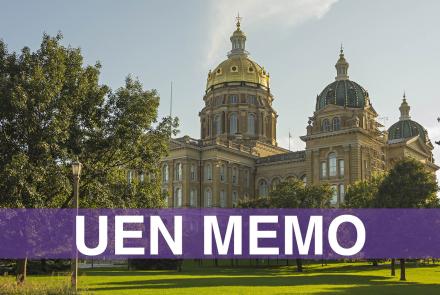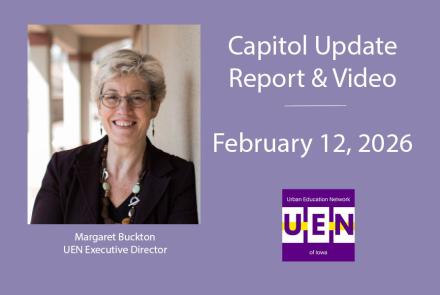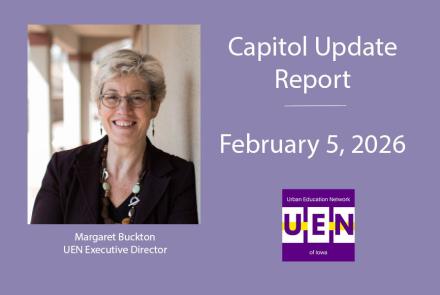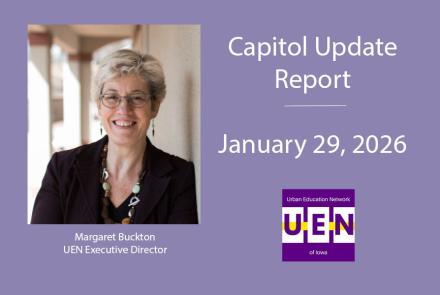Call to Action - Action Expected Next Week on SSA
CALL TO ACTION
Public School Funding SSA
Jan. 27, 2023
Download the printable Public School Funding Call to Action
The per pupil funding increase known as State Supplemental Assistance, or SSA, is on the Senate Education Committee Agenda for Monday, Jan. 30. The Senate bill sets the increase at 2%, while the Governor’s Recommendation is for 2.5%. UEN members should request and expect a higher SSA, on the order of 5%, given high inflation and low per pupil increases over the last decade. See the UEN Issue Brief on Adequate Funding. UEN is registered in opposition to SSB 1081.
Status: Action is expected next week on Monday in the Senate Education Committee, followed by the Senate Appropriations Committee. Senate Floor debate next week is possible.
Iowa Code 257.8 subsection 1 requires the enactment of the SSA increase within 30 days of the release of the Governor’s budget recommendation, which was Jan. 10. We expect fast action between the Senate and House to meet this deadline of Feb. 10.
Key Messages:
- The per pupil increase has lagged inflationary costs. CPI for urban customers was 6.5% year over year through Dec. 2022.
- Labor costs in the economy are increasing faster than per pupil funding. That leaves schools without the resources to competitively compensate staff, from food service and bus drivers to educators. The teacher and other staff shortages worsen when school districts cannot compete with the private sector or schools in other states.
- During the school choice debate, conversations about the sustainability of that $341 million annual cost when phased in mentioned ending balances by FY 2029. At least one House Republican newsletter stated, “By maintaining the policy of spending less than the State takes in the State’s ending balance at the end of FY 2029 is expected to be $3.5 Billion under this forecast while the Taxpayer Relief Fund grows to $3.7 Billion. That is a sizeable cushion.” The State’s cost of a 5% per pupil increase, at an estimated cost of $350 million (assuming no additional property tax relief) pales by comparison with those significant ending balances at over $3 Billion.
- Changes in the Foundation Formula over the last decade have contributed to larger dollar increases in state appropriation, with the percentage exceeding that of the SSA rate. Over $200 million of the $900 million increase since 2011 was state money to offset what would otherwise have been property taxes. The most recent example was SF 619, Mental Health Reform in the 2021 Session, which increased in the school foundation threshold from 87.5% to 88.4% of the cost per pupil. That alone increased the cost of the Formula to the State by $60 million. The 2022 Fiscal Note for HF 2316 School Funding (SSA), which set at 2.5% increase per pupil, demonstrates the impact. The State’s share of the 2.5% SSA demanded a 5.05% increase whereas the property tax increase to fund the 2.5% SSA was only 0.67%. These policy changes are often interpreted as providing increased funding for schools, but those state funds offset property taxes.
- Increased enrollment has also contributed to the larger increase in the State’s share of the formula, with 12,000 more students in public schools in FY 2022 (485,630) compared to the FY 2011 school year (473,504).
- On a statewide basis, about 80% of school general fund expenditures are for staff salary and benefits. When school budgets are tight, staff and program reductions follow.
Find your Representatives here: https://www.legis.iowa.gov/legislators/house
Find your Senator’s contact information here: https://www.legis.iowa.gov/legislators/senate
Reach them at home over the weekend. To call and leave a message at the Statehouse, the House switchboard operator number is 515.281-3221. You can ask if they are available, leave a message for them to call you back, or just leave a short message such as “please provide adequate funding for our public-school students. Another year of 2.5% or lower is not sufficient for our school to provide the education our students and parents deserve.” (Legislators are typically at the Capitol from Monday midday through Thursday afternoon.)


